We’re delighted to offer a selection of latest releases from our core subjects of Anthropology, Educational Studies, Environmental Studies, Genocide Studies, History and Jewish Studies, along with our New in Paperback titles.
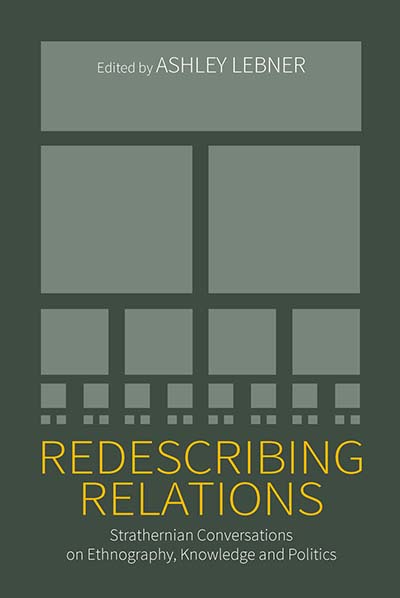 Paperback Original
Paperback Original
REDESCRIBING RELATIONS
Strathernian Conversations on Ethnography, Knowledge and Politics
Edited by Ashley Lebner
Afterword by Marilyn Strathern
Marilyn Strathern is among the most creative and celebrated contemporary anthropologists, and her work draws interest from across the humanities and social sciences. Redescribing Relations brings some of Strathern’s most committed and renowned readers into conversation in her honour – especially on themes she has rarely engaged. The volume not only deepens our understanding of Strathern’s work, it also offers models of how to extend her relational insights to new terrains. With a comprehensive introduction, a complete list of Strathern’s publications and a historic interview published in English for the first time, this is an invaluable resource for Strathern’s old and new interlocutors alike.
Read Introduction: Strathern’s Redescription of Anthropology
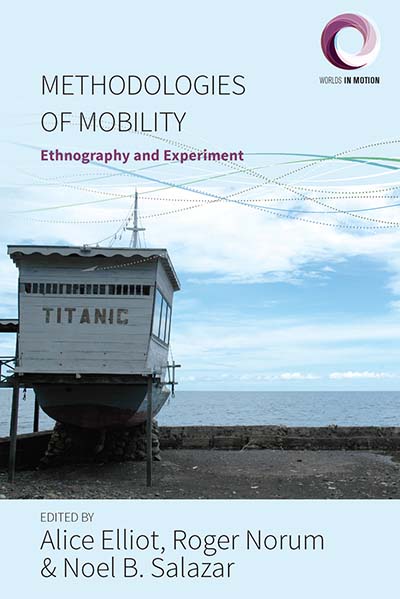 METHODOLOGIES OF MOBILITY
METHODOLOGIES OF MOBILITY
Ethnography and Experiment
Edited by Alice Elliot, Roger Norum, and Noel B. Salazar
Afterword by Simone Abram
NEW SERIES Volume 2, Worlds in Motion
Research into mobility is an exciting challenge for the social sciences that raises novel social, cultural, spatial and ethical questions. At the heart of these empirical and theoretical complexities lies the question of methodology: how can we best capture and understand a planet in flux? Methodologies of Mobility speaks beyond disciplinary boundaries to the methodological challenges and possibilities of engaging with a world on the move. With scholars continuing to face different forms and scales of mobility, this volume strategically traces innovative ways of designing, applying and reflecting on both established and cutting-edge methodologies of mobility.
Read Introduction: Studying Mobilities: Theoretical Notes and Methodological Queries
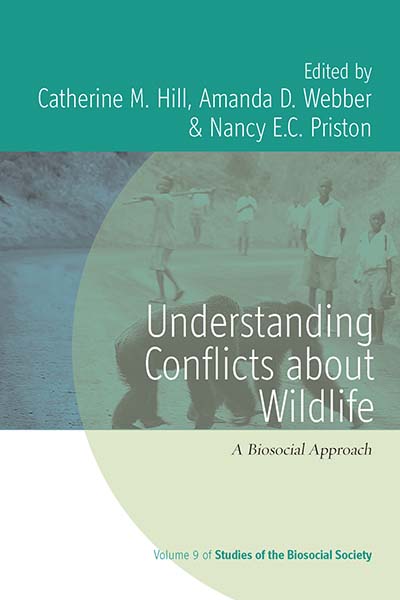 UNDERSTANDING CONFLICTS ABOUT WILDLIFE
UNDERSTANDING CONFLICTS ABOUT WILDLIFE
A Biosocial Approach
Edited by Catherine M. Hill, Amanda D. Webber and Nancy E. C. Priston
Volume 9, Studies of the Biosocial Society
Conflicts about wildlife are usually portrayed and understood as resulting from the negative impacts of wildlife on human livelihoods or property. However, a greater depth of analysis reveals that many instances of human-wildlife conflict are often better understood as people-people conflict, wherein there is a clash of values between different human groups. Understanding Conflicts About Wildlife unites academics and practitioners from across the globe to develop a holistic view of these interactions. It considers the political and social dimensions of ‘human-wildlife conflicts’ alongside effective methodological approaches, and will be of value to academics, conservationists and policy makers.
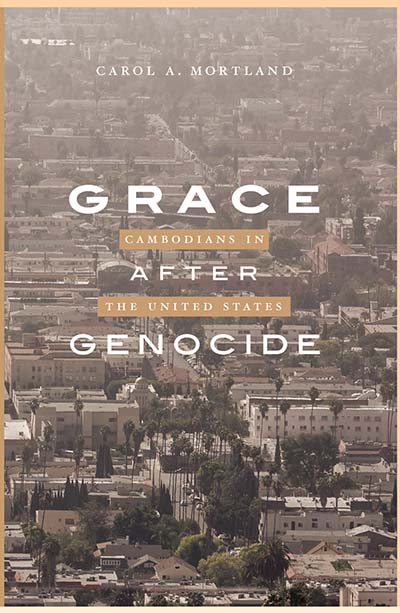 GRACE AFTER GENOCIDE
GRACE AFTER GENOCIDE
Cambodians in the United States
Carol A. Mortland
Grace after Genocide is the first comprehensive ethnography of Cambodian refugees, charting their struggle to transition from life in agrarian Cambodia to survival in post-industrial America, while maintaining their identities as Cambodians. The ethnography contrasts the lives of refugees who arrived in America after 1975, with their focus on Khmer traditions, values, and relations, with those of their children who, as descendants of the Khmer Rouge catastrophe, have struggled to become Americans in a society that defines them as different. The ethnography explores America’s mid-twentieth century involvement in Southeast Asia and its enormous consequences on multiple generations of Khmer refugees.
Read Introduction: From Cambodians to Refugees
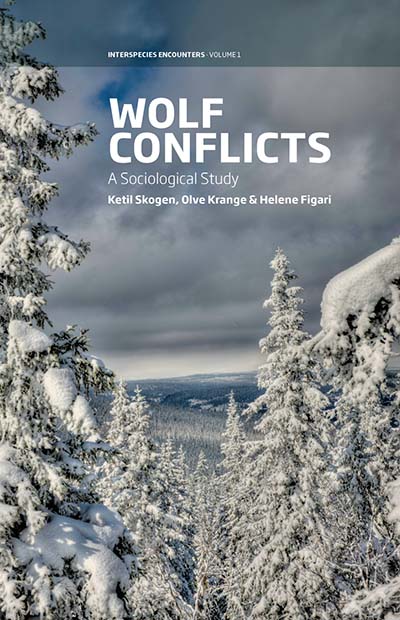 WOLF CONFLICTS
WOLF CONFLICTS
A Sociological Study
Ketil Skogen, Olve Krange, and Helene Figari
NEW SERIES Volume 1, Interspecies Encounters
Wolf populations have recently made a comeback in Northern Europe and North America. These large carnivores can cause predictable conflicts by preying on livestock, and competing with hunters for game. But their arrivals often become deeply embedded in more general societal tensions, which arise alongside processes of social change that put considerable pressure on rural communities and on the rural working class in particular. Based on research and case studies conducted in Norway, Wolf Conflicts discusses various aspects of this complex picture, including conflicts over land use and conservation, and more general patterns of hegemony and resistance in modern societies.
Read Introduction
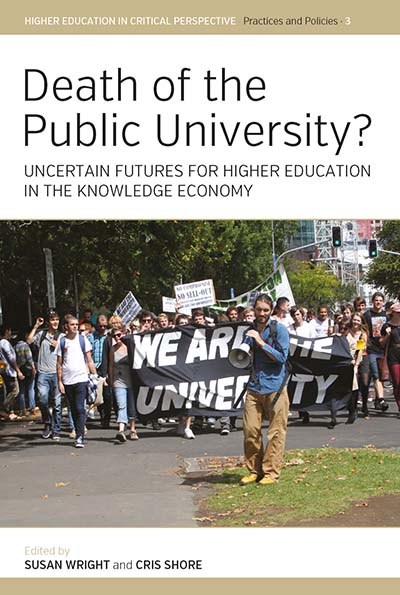 DEATH OF THE PUBLIC UNIVERSITY?
DEATH OF THE PUBLIC UNIVERSITY?
Uncertain Futures for Higher Education in the Knowledge Economy
Edited by Susan Wright and Cris Shore
Volume 3, Higher Education in Critical Perspective: Practices and Policies
Universities have been subjected to continuous government reforms since the 1980s, to make them ‘entrepreneurial’, ‘efficient’ and aligned to the predicted needs and challenges of a global knowledge economy. Under increasing pressure to pursue ‘excellence’ and ‘innovation’, many universities are struggling to maintain their traditional mission to be inclusive, improve social mobility and equality and act as the ‘critic and conscience’ of society. Drawing on a multi-disciplinary research project, University Reform, Globalisation and Europeanisation (URGE), this collection analyses the new landscapes of public universities emerging across Europe and the Asia-Pacific, and the different ways that academics are engaging with them.
Read Introduction: Privatizing the Public University: Key Trends, Countertrends and Alternatives
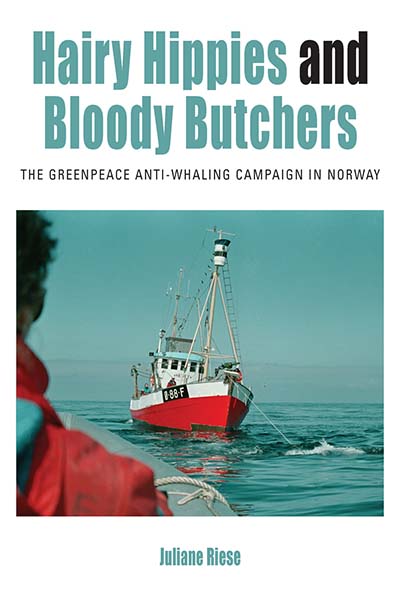 HAIRY HIPPIES AND BLOODY BUTCHERS
HAIRY HIPPIES AND BLOODY BUTCHERS
The Greenpeace Anti-Whaling Campaign in Norway
Juliane Riese
Volume 21, Protest, Culture & Society
In the popular imagination, no issue has been more closely linked with the environmental group Greenpeace than whaling. Opposition to commercial whaling has inspired many of the organization’s most dramatic and high-profile “direct actions”—as well as some of its most notable failures. This book provides an inside look at one such instance: Greenpeace’s decades-long campaign against the Norwegian whaling industry. Combining historical narrative with systems-theory analysis, author Juliane Riese shows how the organization’s self-presentation as a David pitted against whale-butchering Goliaths was turned on its head. She recounts how opponents successfully discredited the campaign while Greenpeace struggled with internal disagreements and other organizational challenges, providing valuable lessons for other protest movements.
Read Introduction: Observing Greenpeace through the Systems-theoretic Lens
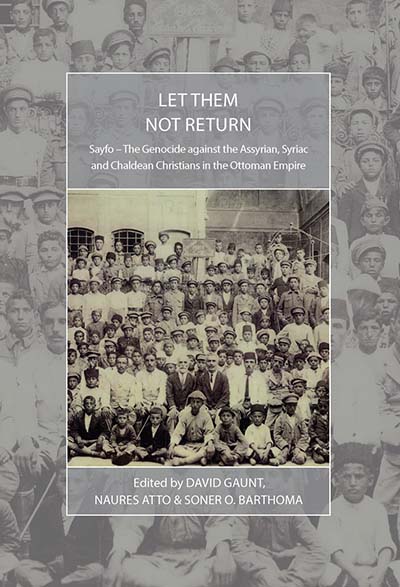 LET THEM NOT RETURN
LET THEM NOT RETURN
Sayfo – The Genocide Against the Assyrian, Syriac, and Chaldean Christians in the Ottoman Empire
Edited by David Gaunt, Naures Atto, and Soner O. Barthoma
Volume 26, War and Genocide
The mass killing of Ottoman Armenians is today widely recognized, both within and outside scholarly circles, as an act of genocide. What is less well known, however, is that it took place within a broader context of Ottoman violence against minority groups during and after the First World War. Among those populations decimated were the indigenous Christian Assyrians (also known as Syriacs or Chaldeans) who lived in the borderlands of present-day Turkey, Iran, and Iraq. This volume is the first scholarly edited collection focused on the Assyrian genocide, or “Sayfo” (literally, “sword” in Aramaic), presenting historical, psychological, anthropological, and political perspectives that shed much-needed light on a neglected historical atrocity.
Read Introduction: Contextualizing the Sayfo in the First World War
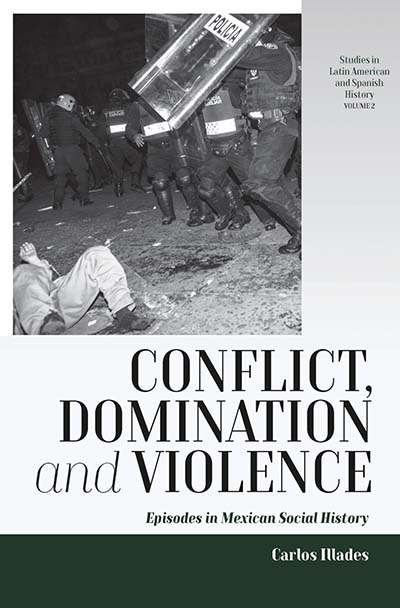 CONFLICT, DOMINATION, AND VIOLENCE
CONFLICT, DOMINATION, AND VIOLENCE
Episodes in Mexican Social History
Carlos Illades
Translated by Philip Daniels
NEW SERIES Volume 2, Studies in Latin American and Spanish History
Conflict, domination, violence—in this wide-ranging, briskly narrated volume from acclaimed Mexican historian Carlos Illades, these three phenomena register the pulse of a diverse, but inequitable and discriminatory, social order. Drawing on rich and varied historical sources, Illades guides the reader through seven signal episodes in Mexican social history, from rebellions under Porfirio Díaz’s dictatorship to the cycles of violence that have plagued the country’s deep south to the recent emergence of neo-anarchist movements. Taken together, they comprise a mosaic history of power and resistance, with artisans, rural communities, revolutionaries, students, and ordinary people confronting the forces of domination and transforming Mexican society.
Read Chapter 1. The Historiography of Social Movements
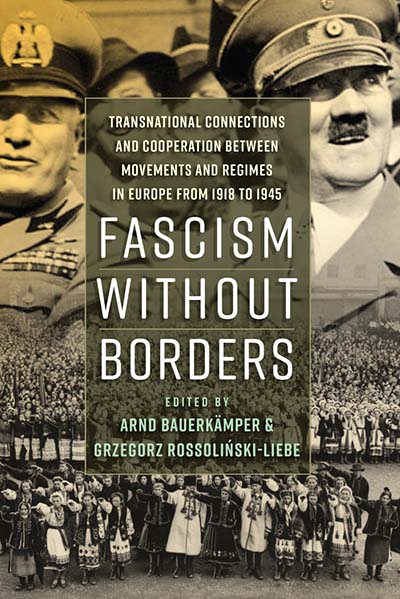 FASCISM WITHOUT BORDERS
FASCISM WITHOUT BORDERS
Transnational Connections and Cooperation between Movements and Regimes in Europe from 1918 to 1945
Edited by Arnd Bauerkämper and Grzegorz Rossoliński-Liebe
It is one of the great ironies of the history of fascism that, despite their fascination with ultra-nationalism, its adherents understood themselves as members of a transnational political movement. While a true “Fascist International” has never been established, European fascists shared common goals and sentiments as well as similar worldviews. They also drew on each other for support and motivation, even though relations among them were not free from misunderstandings and conflicts. Through a series of fascinating case studies, this expansive collection examines fascism’s transnational dimension, from the movements inspired by the early example of Fascist Italy to the international antifascist organizations that emerged in subsequent years.
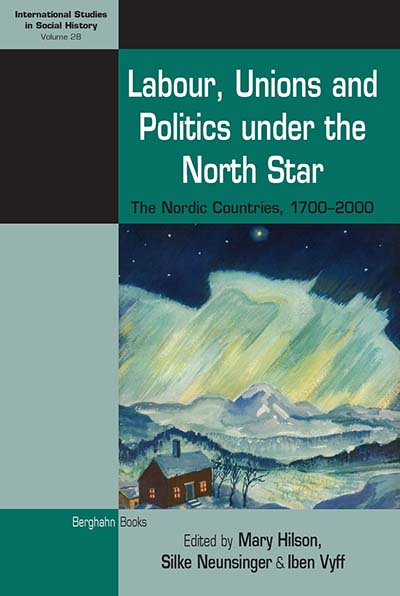 LABOUR, UNIONS AND POLITICS UNDER THE NORTH STAR
LABOUR, UNIONS AND POLITICS UNDER THE NORTH STAR
The Nordic Countries, 1700-2000
Edited by Mary Hilson, Silke Neunsinger, and Iben Vyff
Volume 28, International Studies in Social History
Denmark, Finland, Iceland, Norway, and Sweden today all enjoy a reputation for strong labour movements, which in turn are widely seen as part of a distinctive regional approach to politics, collective bargaining and welfare. But as this volume demonstrates, narratives of the so-called “Nordic model” can obscure the fact that experiences of work and the fortunes of organized labour have varied widely throughout the region and across different historical periods. Together, the essays collected here represent an ambitious intervention in labour historiography and European history, exploring themes such as work, unions, politics and migration from the early modern period to the twenty-first century.
Read Introduction: Labour, Unions and Politics in the Nordic Countries, c.1700–2000
 EVIDENCE AND MEANING
EVIDENCE AND MEANING
A Theory of Historical Studies
Jörn Rüsen
Translated from the German by Diane Kerns and Katie Digan
Volume 28, Making Sense of History
As one of the premier historical thinkers of his generation, Jörn Rüsen has made enormous contributions to the methods and theoretical framework of history as it is practiced today. In Evidence and Meaning, Rüsen surveys the seismic changes that have shaped the historical profession over the last half-century, while offering a clear, economical account of his theory of history. To traditional historiography Rüsen brings theoretical insights from philosophy, narrative theory, cultural studies, and the social sciences, developing an intricate but robust model of “historical thinking” as both a cognitive discipline and a cultural practice—one that is susceptible neither to naïve empiricism nor radical relativism.
Read Introduction
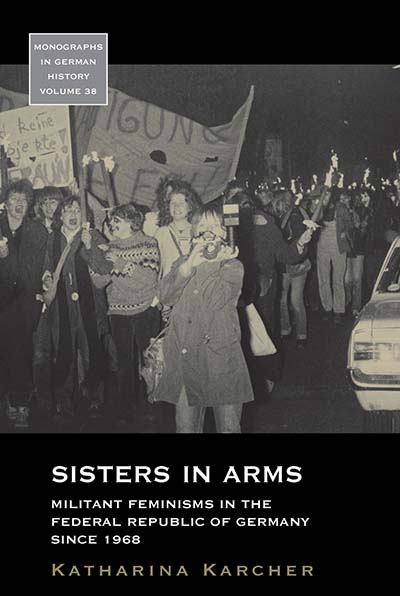 SISTERS IN ARMS
SISTERS IN ARMS
Militant Feminisms in the Federal Republic of Germany since 1968
Katharina Karcher
Volume 38, Monographs in German History
Few figures in modern German history are as central to the public memory of radical protest than Ulrike Meinhof, but she was only the most prominent of the countless German women—and militant male feminists—who supported and joined in revolutionary actions from the 1960s onward. Sisters in Arms gives a bracing account of how feminist ideas were enacted by West German leftist organizations from the infamous Red Army Faction to less well-known groups such as the Red Zora. It analyzes their confrontational and violent tactics in challenging the abortion ban, opposing violence against women, and campaigning for solidarity with Third World women workers. Though these groups often diverged ideologically and tactically, they all demonstrated the potency of militant feminism within postwar protest movements.
Read Introduction
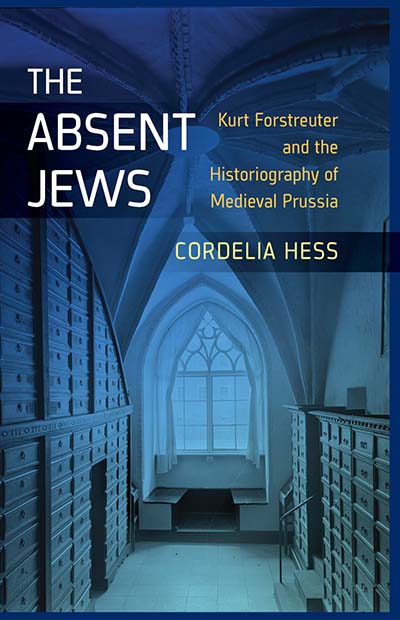 THE ABSENT JEWS
THE ABSENT JEWS
Kurt Forstreuter and the Historiography of Medieval Prussia
Cordelia Hess
For nearly a century, it has been a commonplace of Central European history that there were no Jews in medieval Prussia—the result, supposedly, of the ruling Teutonic Order’s attempts to create a purely Christian crusader’s state. In this groundbreaking historical investigation, however, medievalist Cordelia Hess demonstrates the very weak foundations upon which that assumption rests. In exacting detail, she traces this narrative to the work of a single, minor Nazi-era historian, revealing it to be ideologically compromised work that badly mishandles its evidence. By combining new medieval scholarship with a biographical and historiographical exploration grounded in the 20th century, The Absent Jews spans remote eras while offering a fascinating account of the construction of historical knowledge.
Read Introduction
NEW IN PAPERBACK
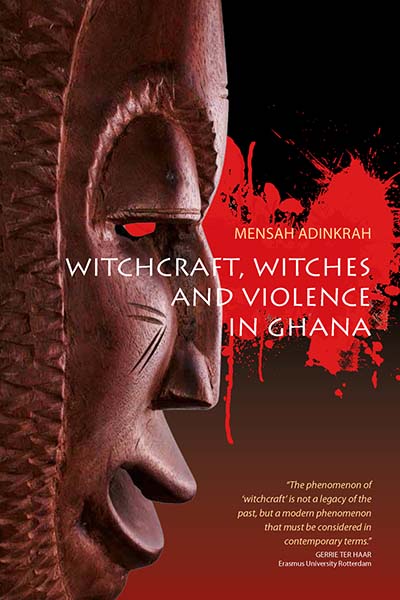 WITCHCRAFT, WITCHES, AND VIOLENCE IN GHANA
WITCHCRAFT, WITCHES, AND VIOLENCE IN GHANA
Mensah Adinkrah
“By attending to witch hunts in all its facets in Ghanaian society, [the author] offers the most in-depth examination of witchcraft to date… Although the author focuses on Ghana, the work draws attention to the fact that witchcraft-related violence is not unique to the country, but very much a part of global history, past and present. The wide variety of sources it pulls together and the human face it gives to witchcraft related violence are the biggest strengths of Witchcraft, Witches, and Violence. This is a valuable book for both undergraduate and graduate students in anthropology, sociology, cultural studies, and African studies.” · International Journal of African Historical Studies (IJAHS)
Read Introduction: Witchcraft Violence in Comparative Perspective
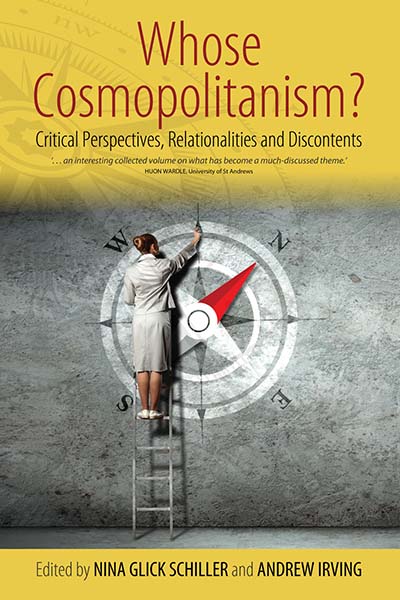 WHOSE COSMOPOLITANISM?
WHOSE COSMOPOLITANISM?
Critical Perspectives, Relationalities and Discontents
Edited by Nina Glick Schiller and Andrew Irving
“The strengths of this volume are numerous. It is interdisciplinary, contains ethnographic original data, and is extremely well organized despite its complexity and high number of chapters. It is also appealing to a large audience including the undergraduate and graduate students, and scholars in the disciplines of cultural studies, anthropology and sociology, migration, international development and religious studies…This collection, without hesitation, is an asset, a timely contribution to a number of fields.” · Anthropological Forum
Read Introduction: What’s In a Word? What’s in a Question?
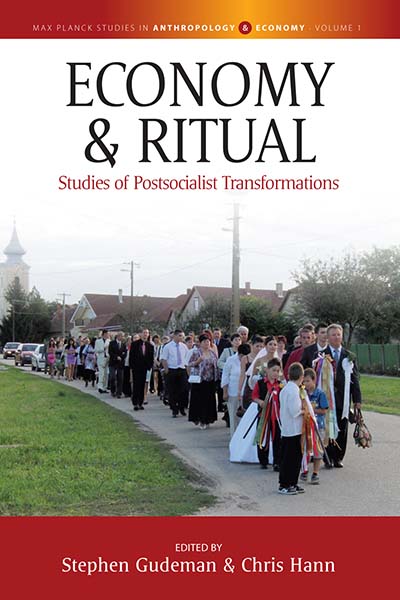 ECONOMY AND RITUAL
ECONOMY AND RITUAL
Studies of Postsocialist Transformations
Edited by Stephen Gudeman and Chris Hann
Volume 1, Max Planck Studies in Anthropology and Economy
“The result of these six ethnographies is a compelling case for attention to the ritual aspects of the economy and the economic aspects of ritual. But this is a revelation that anthropologists are completely prepared to receive, given our basic commitment to holism and cultural integration. The chapters feature useful descriptions of ritual economics and economic rituals, as well as the invention of traditions and non-market forms of production and exchange.” · Anthropology Review Database
Read Introduction: Ritual, Economy and the Institutions of the Base
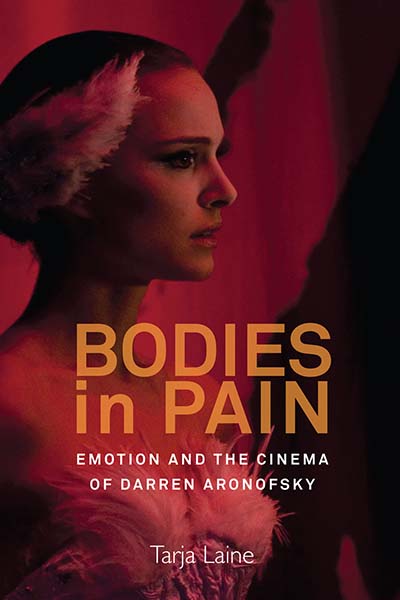 BODIES IN PAIN
BODIES IN PAIN
Emotion and the Cinema of Darren Aronofsky
Tarja Laine
“Laine’s evocative, near-poetic style is refreshing after the former domination of strenuous cognitivist theory in the study of film emotion, and she offers plenty of empirical evidence to back up her claims. Surely such a sensory art form as cinema deserves to be seen (or felt) through an affective lens, and Laine makes an engaging and accessible yet thoroughly rigorous argument for doing so through her study of Aronofsky’s work. Bodies in Pain is recommended for those interested in film phenomenology as well as the intersections of aestheticism, emotion, and philosophy in the cinema.” · Film-Philosophy
Read Introduction: Aronofsky, Auteurship, Aesthetics
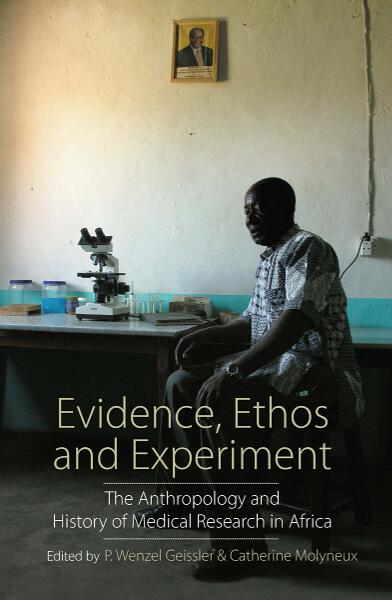 EVIDENCE, ETHOS AND EXPERIMENT
EVIDENCE, ETHOS AND EXPERIMENT
The Anthropology and History of Medical Research in Africa
Edited by P. Wenzel Geissler and Catherine Molyneux
“Each of the chapters is noteworthy. Together, they offer a promising opportunity to broaden the field of postcolonial science studies in ways that remind us how ethicality is at the heart of these encounters of science… the volume will be useful to medical anthropologists, science studies scholars, and generalist scholars of Africa and global health. Individual chapters, as well as whole sections of the book, will be particularly useful for teaching at the upper-division undergraduate or graduate levels.” Medical Anthropology Quarterly
Read Introduction: Studying trial communities: anthropological and historical inquiries into ethos, politics and economy of medical research in Africa
